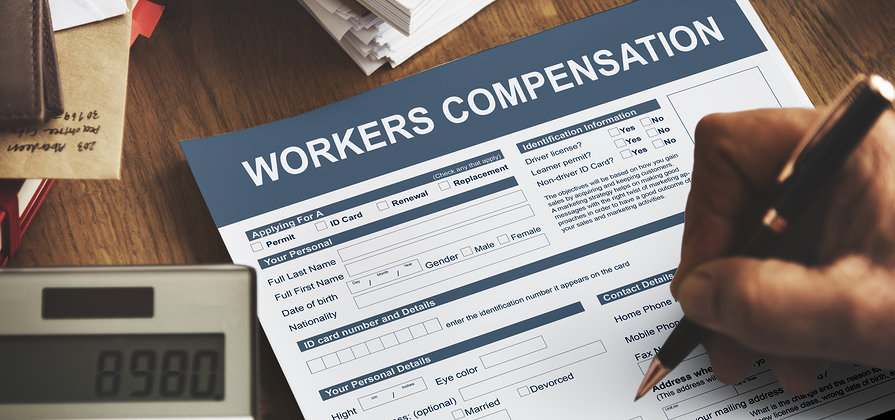
According to data from the National Council on Compensation Insurance (NCCI), workers’ compensation insurance claimants received these average payouts for back injuries between 2017 and 2018:
- Lower back injuries: $17,591 medical benefits and $19,291 indemnity benefits, which totals $36,882
- Upper back injuries: $16,456 medical benefits and $16,698 indemnity benefits, which totals $33,154
With workers’ comp insurance coverage, employees receive medical benefits to pay for medical treatments for their work-related injuries. They also receive indemnity benefits to cover the lost wages or income during recovery. It’s important to note that the severity of back injuries varies from mild sprains that require ample rest and physical therapy to herniated discs requiring surgical procedures and possibly ongoing care. Due to these reasons, the specific amount that workers’ comp insurance pays injured workers will differ vastly from one person to another.
Common Causes of Back Injuries in the Workplace
A National Institute for Occupational Safety and Health (NIOSH) report found that 26 percent (or one in four) of working individuals experience lower back pain. The same report also found that of all workers who experienced back pain, approximately 20 percent of them learned from their doctors that their symptoms were work-related. Back pain in the workplace results from various causes. They could come from just one act, such as lifting an excessively heavy box, or from persistent, gradual strain on the back ligaments, muscles, and discs that protect your spine.
The majority of workplace back injuries result from spine twisting or overextension due to poor posture, pushing, pulling, or heavy lifting. These can eventually lead to the back becoming strained or weakened. You may sustain serious and potentially permanent back injuries in work-related auto accidents or falls from elevated places.
Common back injuries that occur in the workplace include:
- Lower back sprains or strains
- Pinched nerves
- Slipped, herniated, and bulging discs
- Spinal cord damage
- Fractured vertebrae
Back pain can likewise be chronic or acute. Acute back pain occurs quickly, and although it can be very excruciating, it’s only temporary. On the other hand, chronic back pain usually occurs gradually but could persist for years or permanently. Regardless of the cause, back injuries can negatively impact an individual’s ability to do their work properly. Likewise, these injuries are usually so painful and need extensive treatment and recovery time that six to ten percent of workers need to stop working, tweak their job duties, or switch jobs due to low back pain.
Treating Workplace Back Pain and Injuries
Back injury treatments range from home treatments, such as resting and applying cold or hot compresses, to more extensive treatments, including surgery. Your doctor may recommend non-prescription medications for alleviating inflammation and pain, including acetaminophen, ibuprofen, aspirin, or other non-steroidal pain meds.
To address more severe pain, your doctor may prescribe painkillers like Percodan, Vicodin, or other potent pain drugs. Take note that these powerful painkillers come with adverse side effects and their use requires close management to avoid potential opioid addiction. Supplementary treatments can include massage, chiropractic care, whirlpools, and ultrasound therapy, among others.
Most injured workers need to go back to work as quickly as possible because living on partial wages, especially for those with families, could be frustrating and stressful. But failing to follow all your doctor’s treatment and recovery instructions could delay your recovery or even worsen your symptoms. Also, follow your doctor’s instructions on when you can go back to work. Going back to work when you have not yet fully recovered could also hurt your workers’ comp case and future claims.
Important Steps to Take After a Workplace Back Injury
After reporting the incident that led to your injury and obtaining proper treatment from a workers’ comp insurance-approved doctor, you will need to undergo an evaluation. If the doctor has established that you have reached your Maximum Medical Improvement, which means that you have a disability or further treatment isn’t needed, you would have to undergo another medical exam required by the insurance company.
The law entitles injured employees to workers’ comp benefits. You can use these benefits to cover medical treatments, some of your lost wages, and out-of-pocket costs, among others. You also won’t need to pay premiums, coinsurance, or copays and meet deductibles. You can likewise continue receiving regular health insurance benefits provided by your employer so you can obtain treatment for health problems that may occur while receiving treatment for your workplace back injury. If your back injury resulted in permanent disability, you may also qualify for compensation to cover loss of future earnings.
Workers’ compensation won’t cover all your lost wages or any pain and suffering damages. But with a workers’ comp claim, you also don’t need to prove that your employer caused your injury, only that you suffered your injuries while working for your employer. However, if a third party unrelated to your employer caused the accident and your injuries, you might file a claim against that party to recover financially for the remainder of your losses.
Seeking Legal Advice for a Back Injury Workers’ Compensation Claim

You can accept whatever amount the insurance company decides to pay you, and you can expect to receive checks every week for a predetermined amount of time. However, if you don’t agree with the compensation amount because it’s inadequate for your injuries, you are unsure whether the benefits are fair, or you want another payment plan, you can try negotiating with the insurance provider or taking your claim to trial so that a judge can review your claim and pass judgment on the dispute.
Settling with the insurance provider has its advantages, but it also comes with potential disadvantages. So before agreeing to a settlement, make sure that you understand all your options and their consequences. Consider consulting a lawyer in your area that has experience in working with workers’ comp claimants to determine if what the insurance provider is offering you is fair. In most cases, an experienced lawyer can help you negotiate a better settlement to ensure that you receive the compensation you deserve.



